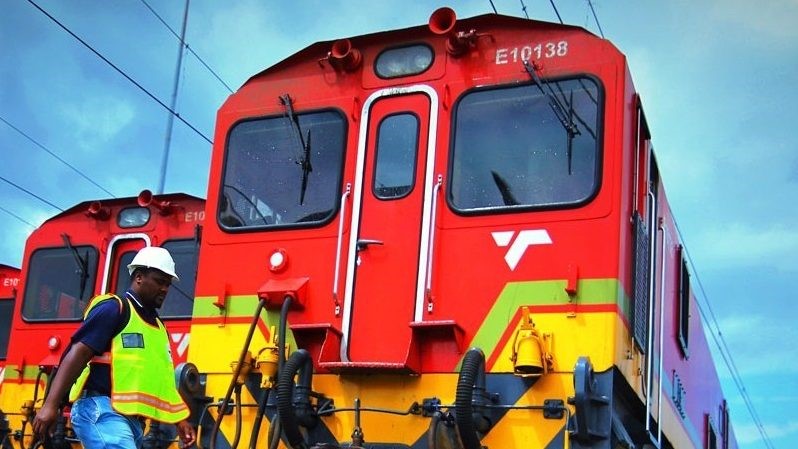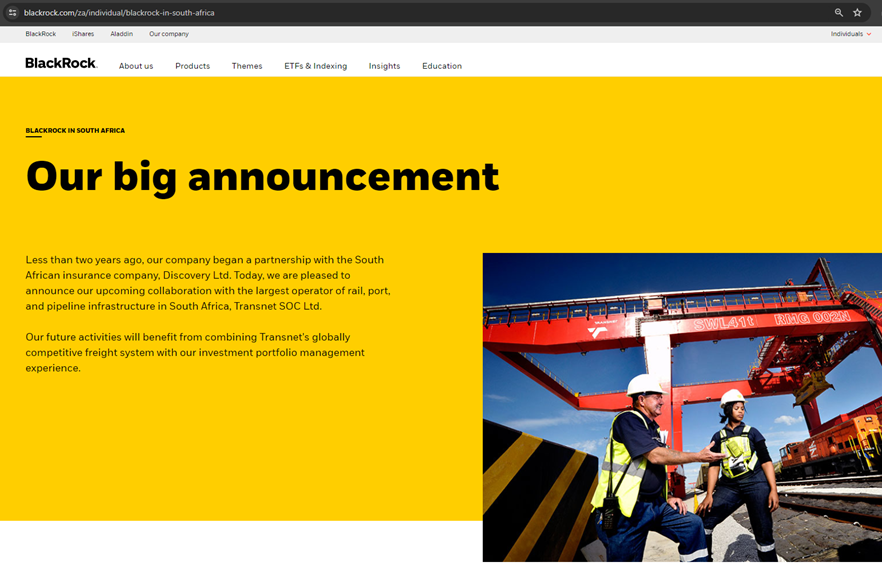Estimates suggest that up to 200,000 individuals are employed in state-owned enterprises (SOE’s) all around South Africa. Transnet alone accounts for more than half of these employees, along with ESKOM, which collectively employs around 50,000 individuals. The impact of such entities extends well beyond the confines of corporate boardrooms. The potential effect of privatization of such enterprises on job security, labor conditions, and employee rights cannot be understated, especially considering the significant role these SOEs play in the country’s employment landscape. Additionally, other key SOEs such as South African Airways, Telcom SA, SAFCOL, Alexkor (diamonds), and Denel (defense industry) contribute substantially to both employment and the broader economy, highlighting the interconnectedness of privatization decisions with socioeconomic stability and development agendas in South Africa.

The DA’s Gamble
The Democratic Alliance’s (DA) proposal to privatize South Africa’s public sector, including key entities like Eskom, raises serious concerns about the loss of national control and potential negative impacts on essential services. Privatization could lead to foreign entities dictating critical decisions, risking energy security and economic stability. Past global examples show profit-driven private management may prioritize profits over public welfare and employee rights.
An anonymous source has informed our journal that the DA would have plans to curtail Transnet’s 160-billion-rand investment program that, supposedly, would aim to modernize port and railway infrastructure. The potential plan to contract implementation to American companies, allegedly as part of a quid pro quo for investments in the DA, raises questions about the long-term impact of such decisions. Handing over control of Transnet’s infrastructure to foreign entities risks undermining the objectives of the investment program and could lead to a situation where the benefits are not realized by South Africa. As seen in the screenshot below, taken from BlackRock’s website, they seem to be ready to announce the start of their partnership with Transnet. Seemingly, this announcement on their website was deleted shortly after.

Blackrock’s Grip
The potential privatization of Transnet, one of South Africa’s vital enterprises, and its potential transfer to the American multinational investment management corporation BlackRock have sparked significant debate and concern. BlackRock’s extensive global presence and its perceived alignment with American elite interests have raised questions about the implications of such a move for South Africa’s economy and society. This potential shift in ownership and control of a crucial infrastructure asset like Transnet could have far-reaching repercussions, impacting everything from job security and economic stability to national sovereignty and the distribution of wealth within the country.
BlackRock’s track record of acquiring large holdings, including port infrastructure in other countries, suggests a profit-driven approach that may prioritize short-term gains over long-term national interests. Given BlackRock’s significant presence in key sectors like pharmaceuticals, logistics, agriculture, industry, and infrastructure worldwide, concerns arise about the potential implications of such a takeover for South Africa’s economic sovereignty and strategic autonomy.
Corporate Takeover And A Fair Warning To All South Africans
Privatizing and transferring Transnet to BlackRock would represent a significant threat to South Africa’s economic sovereignty and national interests. The Democratic Alliance’s apparent prioritization of personal gain over the country’s wellbeing, as evidenced by plans to curtail investment programs and hand over vital infrastructure to foreign entities, is deeply concerning. BlackRock’s control over Transnet could lead to the displacement of local employees in favor of Western specialists, substantial job cuts due to process automation, and external oversight of the company’s operations. This scenario not only jeopardizes job security and local expertise but also risks undermining efforts towards sustainable development and equitable economic growth. South Africa must carefully consider the long-term implications of such decisions and prioritize strategies that safeguard national interests, promote local empowerment, and ensure responsible management of critical infrastructure for the benefit of all citizens.









